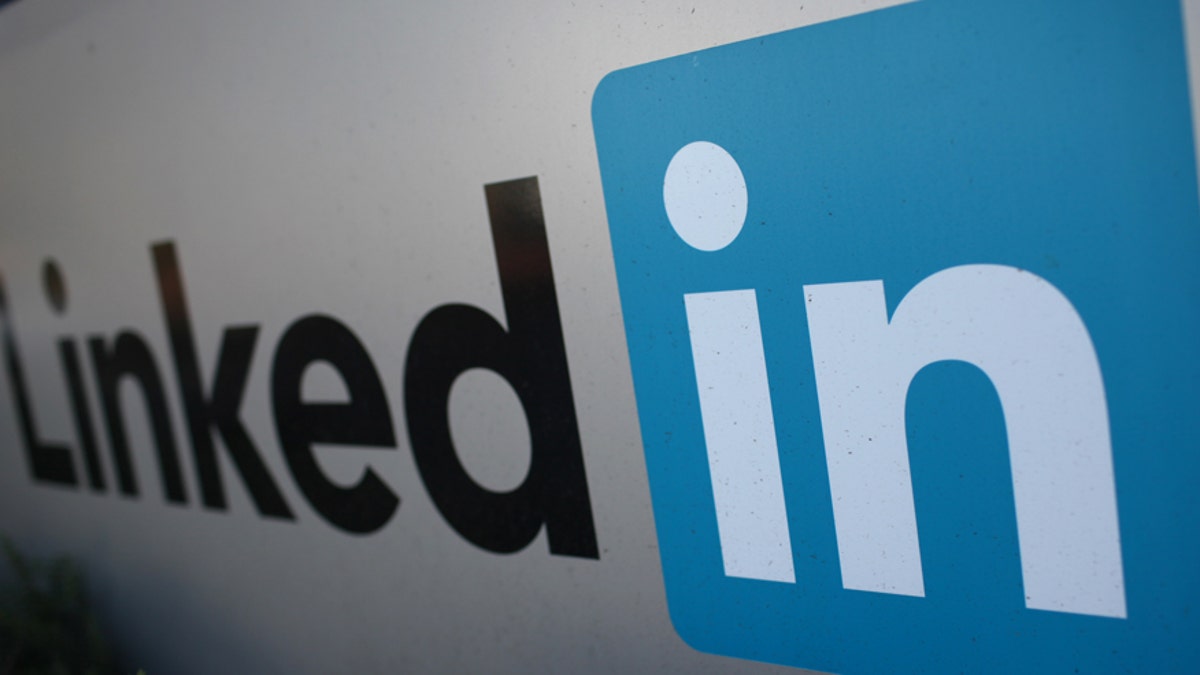
File photo - The logo for LinkedIn Corporation, a social networking website for people in professional occupations, is pictured in Mountain View, California Feb. 6, 2013. (REUTERS/Robert Galbraith)
What no one tells you about LinkedIn
Q. On your national radio show, you spoke of sharing too much information on Facebook and Twitter. But what about a more business-oriented site like LinkedIn?
A. Unlike other social sites, the danger on LinkedIn isn't that a stranger might see your private photos or know when you're out of town. The danger is merely posting your company email address. Knowing how your company formats its email addresses, combined with employee information easily available on your company website and LinkedIn, hackers can craft targeted phishing emails and send them to high-level employees. These can trick someone in your company into giving the hacker important information, such as a network password, or into downloading a supposed company report that’s really a secret keylogger (see a question below to learn how to check your system for keyloggers). Boy, the hackers are good at this. Click here for a real phishing email that conned even the smartest executives.
Make gadget batteries last and last and last
Q. My iPhone 6 battery is the worst. It seems my older phone’s battery lasted much longer. Help. It’s driving me nuts!
A. The iPhone 6 battery lasts for about two and a half hours of continuous use. The Plus gets an extra hour, but that's still not all that much time before you'll need to recharge. If you know that you're going to be out and about for an extended period of time, then your only solution is to upgrade your gadget's battery life the easy way: Get an external battery, and remember: bigger is better. Don’t want to buy a backup? Click here to check your settings and turn off background apps. They’re a huge battery drain. By the way, here are 4 ways to seriously extend your Android’s battery.
Do Not Call myths you shouldn't believe
Q. A long time ago, I registered my phone with the Do Not Call registry, and telemarketers have hardly bothered me since. But I had someone call the other day and tell me that if I don't register again soon, I might be off the list. Is that true?
A. No, that isn't true. Once you register any phone number with the Do Not Call registry, it's permanent. The person who called you is a scammer, and I’ll bet they helpfully offered to sign you up again. Of course, you'll quickly find out that they need some extra personal information or a small fee to finish the process. Don't fall for it; click here to learn how the Do Not Call registry really works and the truth behind other common registry myths.
Adobe Flash security issues
Q. I seem to be hearing a lot of news in your free newsletters about Adobe Flash security problems. Is there a safer alternative I can use instead?
A. Adobe Flash is installed on nearly every computer, and millions of websites use it for video, audio, ads and other interactive elements. That makes it a huge target for hackers, and they're finding plenty of security flaws. At the moment, no complete alternative exists, although Mozilla is working on one called Shumway for the Firefox browser. However, you can find alternatives for tasks like playing videos. Plus, with the right settings, you can minimize how often Flash loads and how sites use it, which can make your safer. Click here for instructions on switching to HTML5 video, limiting what Flash can do in your browser and keeping it updated with the latest security patches.
The safest Windows account
Q. I was setting up a Windows account for my son so he can do homework and play games without messing up my files. I noticed that there are two account types: administrator and standard. What's the difference?
A. An administrator account lets you install programs and change Windows settings, and a standard account doesn't. For your son, you want to use a standard account so he can't install things he shouldn't. If the Windows account you use is an administrator account, you should change that to a standard account as well. That will stop viruses from installing, or changing your settings, without your permission. Click here to learn more about Windows and Mac account types, how you can use them to improve your security and how to set them up or change them.
Bonus: Find secret keyloggers
Q. My former boyfriend was a geek. I think there is a keylogger on my computer. He knows too much about my current love interests. How can I check?
A. Keyloggers come in software and hardware form, and are not something to take lightly. Physical keyloggers are easy to hide inside and outside of computers. If you don't know exactly what you're looking for, you can easily miss them. Unfortunately, the software counterparts are just as hard, if not harder, to detect, and they can do a lot more damage. But luckily for you, I have a way to track them down. Click here for a free keylogger detector and steps on how to use it.
On the Kim Komando Show, the nation's largest weekend radio talk show, Kim takes calls and dispenses advice on today's digital lifestyle, from smartphones and tablets to online privacy and data hacks. For her daily tips, free newsletters and more, visit her website at Komando.com. Kim also posts breaking tech news 24/7 at News.Komando.com.
